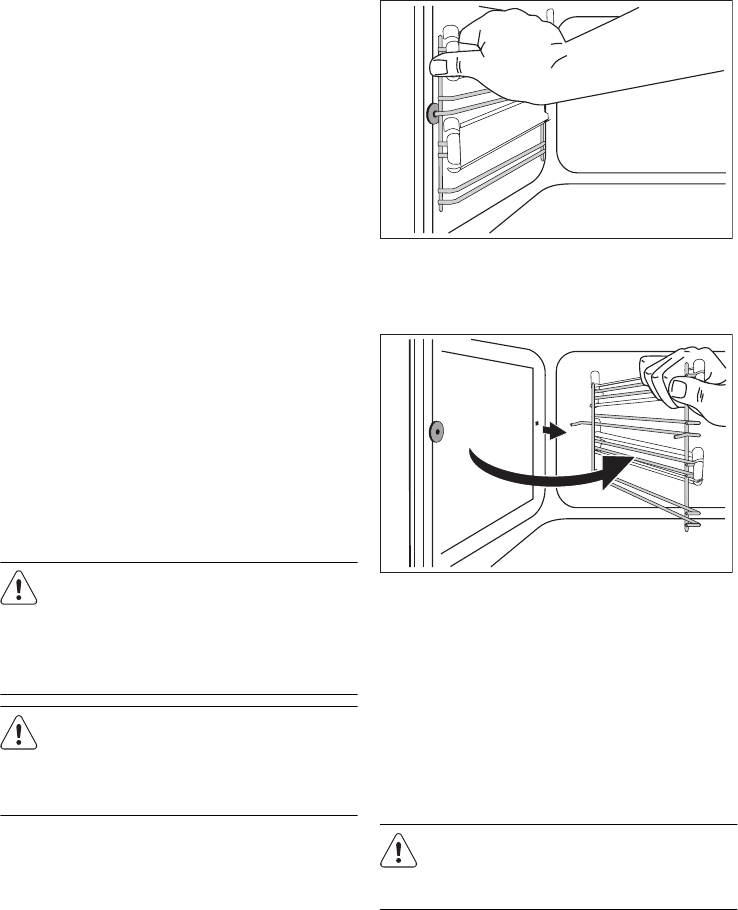
the meat tin when roasting. The water and the
fat juices from the joint create excessive
splattering during cooking, even at normal
temperatures, as well as causing
condensation.
Covering joints during cooking will also
prevent splashing onto the interior surfaces;
removing the covering for the last 20-30
minutes will allow extra browning, if required.
Some large joints and turkeys especially
benefit from this method of cooking, allowing
the joint to cook through before the outside
is overbrowned.
Do use the roasting tin. During roasting, the
fat from the joint will be contained beneath
the trivet and therefore prevent it from
splattering onto the ’Catalytic’ liner.
Removable shelf runners
and catalytic panels
To clean the oven cavity remove the shelf
runners and catalytic panels.
Warning! Be careful when you
remove the shelf runners. The catalytic
panels are not attached to the oven
cavity and can fall out when you
remove the shelf runners.
Warning! Before maintenance, make
sure that the appliance is cool. There
is risk of burns because of residual
heat.
Removing the side rails
1. Use one hand to pull the front part of the
shelf runners. Hold the shelf runners and
catalytic panel in place with the other
hand.
2. Hold the shelf runners and catalytic panel
in place and at the same time unhook the
shelf runners at the back.
1
2
Clean the shelf runners with warm water and
soap. Wipe it with a soft cloth. Never use
abrasive products which can damage it.
When you finish cleaning put the shelf runners
and catalytic panels back. To put the shelf
runners and catalytic panels back, follow the
procedure in reverse.
Replacing the Oven Light
Warning! Before replacing the oven
light disconnect the appliance from the
electrical supply.
If the oven bulb needs replacing, it must
comply with the following specifications:
• Electric power: 15 W/25 W,
• Electric rate: 230 V (50 Hz),
• Resistant to temperatures of 300°C,
29


















